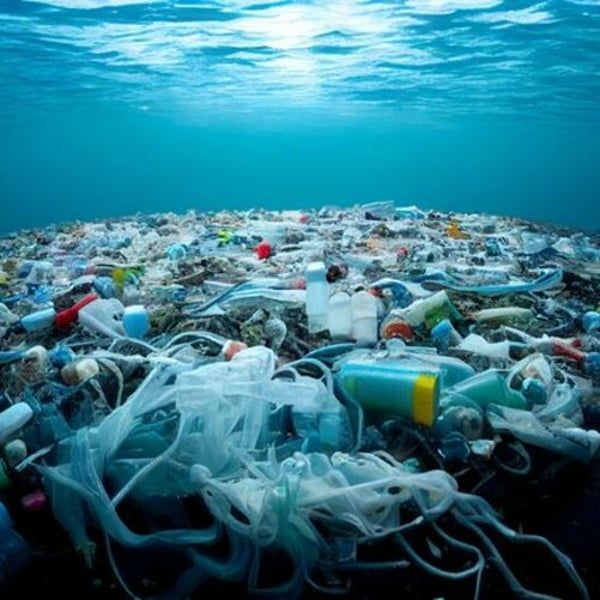By
AFP
Translated by
Nicola Mira
Published
December 2, 2024
Week-long negotiations in Busan, South Korea, to reach a global agreement to fight plastic pollution failed to reach a conclusion and will continue at a later date, the diplomat presiding over the proceedings announced Sunday.
“Several critical issues still prevent us from reaching an overall agreement. These unresolved issues remain thorny and more time will be needed to resolve them effectively,” said Ecuadorian Ambassador Luis Vayas Valdivieso, opening the final plenary session of the UN negotiations.
“We need to build on the progress that has been made” during the week, he added, indicating that “there is general agreement to resume the session at a later date.”
After two years of talks, the more than 170 countries represented at the fifth session of the Intergovernmental Negotiation Committee (INC-5) to develop a legally binding international policy on plastic pollution, had until Sunday night to reach a agreement.
But the session, which began on Nov. 25, devolved into a showdown between a majority of countries seeking an ambitious treaty and a small group of oil-producing countries led by Russia, Saudi Arabia and Iran.
“Continuous opposition”
“We are concerned about the continued opposition” from some oil-producing countries, French Energy Minister Olga Givernet said in the morning.
A European diplomat who participated in the negotiations told the AFP agency that the meetings within the different contact groups lasted until the early hours of the morning without any progress.
The group of recalcitrant countries “adopted obstructionist tactics and abused their veto powers,” the unnamed diplomat said on Sunday. “We witnessed up to 60 five-minute interventions to change a single sentence” in the draft agreement.
“We would rather leave here without an agreement than with a bad agreement, but we are not happy. The situation is very bad,” added the diplomat.
Frustration grew throughout the week within the most ambitious group of countries, which included those in favor of a strong treaty that would address the entire life cycle of plastics, from the production of polymers from petroleum products to plastic waste management.
This coalition was at odds with a small group led by Russia, Saudi Arabia and Iran, which believes the future treaty should cover only waste management and recycling of plastic waste. Delegates from the most ambitious countries tried to end the Busan conference on a positive note.
“We have made much-needed progress on a number of issues that will be crucial for the treaty to achieve its goal of protecting human health and the environment from the harmful effects of plastic pollution,” said Juliet Kabera, leader of the Rwandan delegation. . speaking at the plenary session.
“However, we would like to express our deep concern about continued calls from a small group of countries to remove from the text certain binding provisions essential to the effectiveness of the treaty,” he added.
In a rare show of support, Kabera, speaking on behalf of a group of 85 countries, asked all like-minded delegates to stand at the end of his speech, earning him thunderous applause.
“A considerable gap”
If nothing is done, plastic pollution levels could triple worldwide by 2060, after global production has already tripled to 1.2 billion tonnes compared to 460 million tonnes in 2019, according to OECD figures. .
The group of countries opposed to an agreement on production cuts let Kuwait speak on their behalf at the end of the negotiations. “It is not a question of minority or majority. Our presence here reflects a frank commitment to fight plastic pollution,” said the representative of Kuwait, asking for “respect” for his group.
“But we must express our grave concern about how this negotiation was conducted,” he continued, saying that INC-5 delegates had overstepped their mandate by calling for production cuts.
“The purpose of this treaty is to end plastic pollution, not plastic per se. “We have not heard any proposals on what could replace plastic,” the Kuwaiti delegate continued.
A representative of Iran acknowledged the “considerable gap” between the positions of different states. “We remain committed to continuing constructive negotiations,” he added, stating that he was willing to resume negotiations at a later date, based on the draft agreement drawn up in Busan.
Copyright © 2024 AFP. All rights reserved. All information displayed in this section (submissions, photographs, logos) are protected by intellectual property rights owned by Agence France-Presse. Consequently, you may not copy, reproduce, modify, transmit, publish, display or commercially exploit in any way the content of this section without the prior written consent of Agence France-Presses.












